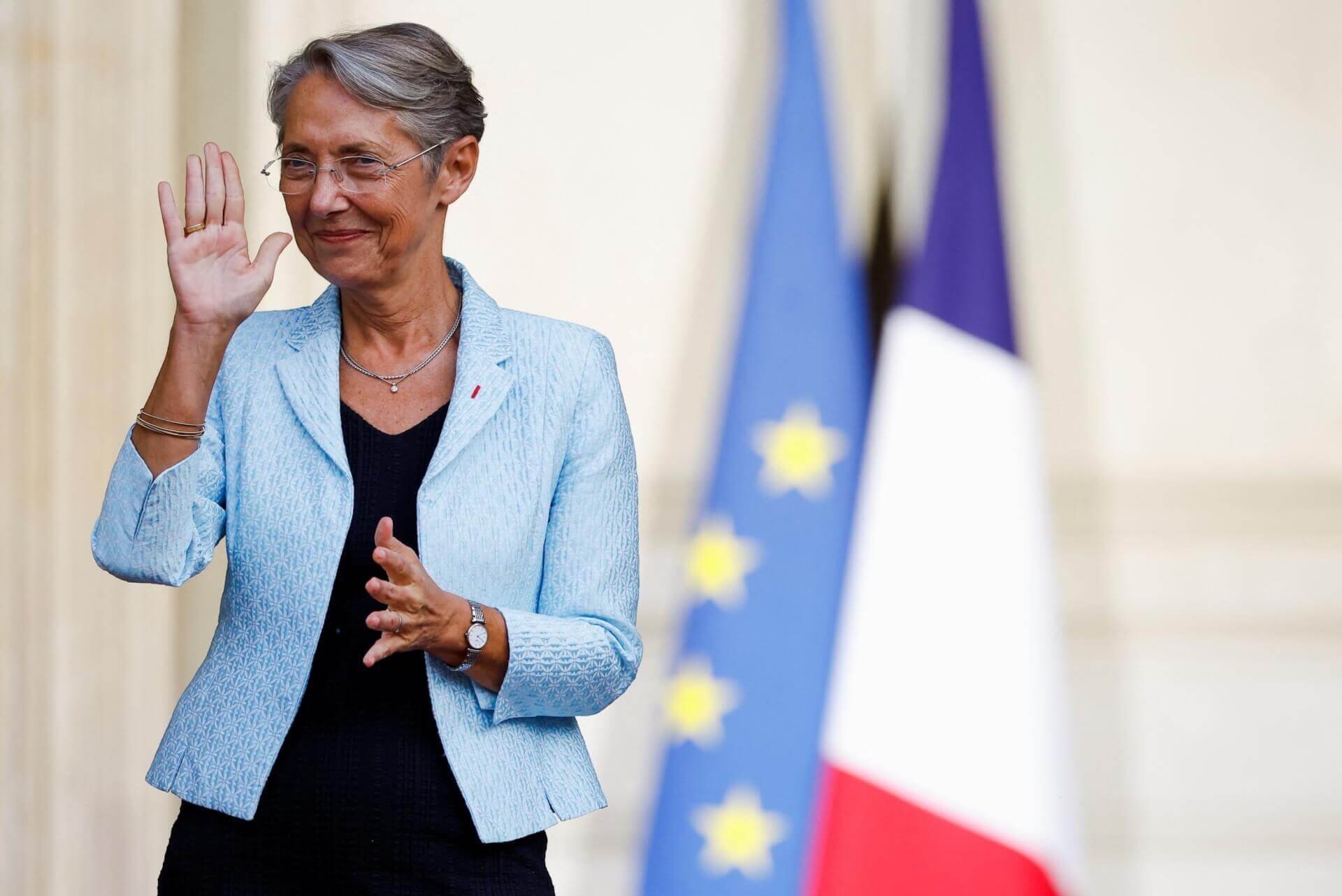South Asia
An IED blast in Karachi killed one woman and injured 11 others. Prime Minister Shehbaz Sharif condemned the attack and called on authorities to arrest the perpetrators expeditiously. [The News Pakistan]
The General Secretariat of the Organisation of Islamic Cooperation expressed “deep concern” over India’s delimitation exercise in Jammu and Kashmir, saying it violated the rights of Kashmiris. The Indian government’s Delimitation Commission was also accused of “altering the demographic structure” of the region by redrawing the boundaries of electoral constituencies. [Organisation of Islamic Cooperation]
Central Asia and the Caucasus
The leaders of the Collective Security Treaty Organization (CSTO) countries—Armenia, Belarus, Kazakhstan, Kyrgyzstan, Russia, and Tajikistan—met in Moscow on Monday to discuss strengthening the bloc and fortifying its borders. The leaders said that situation in Afghanistan poses a major threat to CSTO countries. In this respect, they said that members would work together on security matters and even expressed willingness to cooperate with the North Atlantic Treaty Organization (NATO). “Realising our responsibility in ensuring sustainable peace in the Eurasian region, we emphasize the need for de-escalation in the continent and we affirm readiness to establish practical cooperation with NATO,” a joint statement by the leaders said. [Armen Press]
A United Nations working group has concluded that Turkmenistan violated international human rights laws when it arrested lawyer Pygamberdy Allaberdyev in 2020. Allaberdyev was arrested for organising a pro-democracy rally and charged with hooliganism and having ties with activists abroad. [RFE/RL]
East and Southeast Asia
Japan is lifting an evacuation order on the village of Kasurao on June 12, whereby those who used to live in the village prior to the 2011 Fukushima disaster can return home. “[The removal] will be a start instead of a goal,” said Masahiro Ishii, a senior vice-minister at the Ministry of Economy, Trade and Industry. [South China Morning Post]
Health ministers and officials from member states of the Association of Southeast Asian Nations (ASEAN) have agreed to work towards the mutual recognition of COVID-19 vaccination certificates to help ease international travel, said the ASEAN Secretariat’s Ministry of Health (MOH). “With ASEAN recovering from the pandemic and reopening our borders to the world, it is important to establish seamless travel across the region, such as the use of digital technology to mutually recognise vaccination certificates across countries,” said the Association’s MOH. [Channel News Asia]
Europe
The United Kingdom’s opposition Labour Party’s Minister for the Middle East and North Africa, Bambos Charalambous, was joined by other members of the parliament in calling on the government to call for an investigation into the killing of Al Jazeera’s journalist Shireen Abu Akleh, allegedly by Israeli forces. He said the inquiry should be “urgent, independent, and impartial.” [Al Jazeera]
Former Labour Minister and centrist politician Elisabeth Borne was appointed as France’s new Prime Minister on Monday after her predecessor Jean Castex resigned earlier in the day. Borne’s first task is to ensure that President Emmanuel Macron’s centrist party and allies fare well in parliamentary elections in June. [Euronews]
Ukrainian Deputy Defence Minister Hanna Maliar announced on Monday that over 260 soldiers had been evacuated from the Azovstal steel plant in the southern port city of Mariupol. She said that 53 heavily wounded armed personnel were sent to a hospital in the Russian-controlled town of Novoazovsk and that over 200 others were moved to Olenivka. However, it remains unclear how many soldiers remain at the steel plant. President Volodymyr Zelensky said in a video statement, “We hope to save the lives of our boys,” adding, “I want to underline: Ukraine needs its Ukrainian heroes alive. This is our principle.” [BBC]
Latin America and the Caribbean
On Monday, the United States Coast Guard announced that it has suspended rescue operations for survivors of a boat that capsized near Puerto Rico on Thursday. Federal authorities revealed that they have recovered 11 bodies and rescued 38 migrants, most of whom were Haitians. Capt. Gregory Magee, while expressing condolences for the victims, said that the crew had done their “utmost to ensure that if there were any more survivors, they would have had the best chance to be rescued.” Charges have been laid against Fermín Montilla from the Dominican Republic for allegedly smuggling Haitian migrants. [Associated Press]
27 Costa Rican institutions, mostly government agencies, were targeted by a wave of cyberattacks in the past month, President Rodrigo Chaves said on Monday. “We are at war and that is not an exaggeration,” he said as he announced a national emergency on May 8. He noted that the online attacks have had an “enormous” impact on foreign trade and tax collections and forced the finance ministry to deactivate its tax systems. Carlos Henry Alvarado, Costa Rica’s Science and Technology Minister noted that the government has sought the assistance of the United States, Spain and Israel in this regard. [Reuters]

Middle East and North Africa (MENA)
Russian forces launched S-300 anti-aircraft missiles on Israeli jets during an air raid in Syria last week, Israeli media reported on Monday. If true, the move marks a major change in Moscow’s policy towards Israeli airstrikes in Syria. Following its intervention in the Syrian civil war in 2015, Russia reached an agreement with Israel allowing Israeli jets to continue operating in Syria against Iranian targets. [Times of Israel]
Yemeni Information Minister Muammar Al-Eryani has called on the international community to pressure the Houthi rebels to stop manufacturing and laying mines, and hand over maps of minefields. According to Al-Eryani, mines have killed tens of thousands of Yemenis, including women and children, since the civil war began in 2014. [Saudi Press Agency]
North America
On Sunday, White House Chief Medical Adviser Dr Anthony Fauci asserted that he would not continue in his role if former United States President Donald Trump is re-elected in 2024. When asked whether he had confidence in Trump to tackle COVID-19 if it’s still persisting, or another public health emergency, Fauci said, “If you look at the history of what the response was during the [Trump] administration, I think, you know, at best you could say it wasn’t optimal,” adding, “And I think just history will speak for itself about that.” The National Institute of Allergy and Infectious Diseases director, who was a leading member of the Trump government’s COVID-19 team in 2020, often disagreed with its handling of the pandemic. Trump is expected to launch his third bid for the presidency later this year. [CNN]
On Monday, the Canadian parliament passed a motion to reinstate a special committee on Canada-China bilateral relations introduced by the Conservative party. The motion said that Beijing threatens Chinese-Canadian pro-democracy and human rights activists and poses a threat to the country’s national security. The New Democratic Party (NDP) and the Bloc Quebecois voted in favour of the resolution, while the Liberal Party of Canada did not support it. The committee was first formed in 2019 to review the two countries’ economic, legal and security partnership. [National Post]
Oceania
On Monday, New Zealand’s Minister of Foreign Affairs, Nanaia Mahuta, announced new sanctions against Belarusian leaders, including President Alexander Lukashenko, and defence entities for supporting Russia’s “ illegal and unacceptable assault on Ukraine’s sovereignty.” Mahuta further condemned Russia’s “unjustified” war and called on Belarus to immediately withdraw its support. [New Zealand Government]
Australian opposition leader Anthony Albanese said he would bring a package of policies focused on Southeast Asia to the Quad meeting if elected prime minister. The package would include $329 million in foreign aid over four years and the appointment of a special envoy for the region. Australia, the United States, India, and Japan are scheduled to meet on May 24 in Tokyo for the next summit, three days after the conclusion of Australia’s federal election. [The Age]
Sub-Saharan Africa
The United Kingdom is gearing up to relocate its first batch of asylum seekers to Rwanda as part of a migration deal it reached with the east African country earlier this month. As part of the $160 million deal, several migrants entering the UK illegally after January 1, 2022 will be resettled in Rwanda. International Rights Organizations have highlighted that the arrangement breaches the “principle of non-refoulement,” an intrinsic element of the 1951 United Nations Refugee Convention. However, the two nations have defended it as a possible solution to the challenges of migration and human trafficking. [Africa News]
A number of companies from the United Kingdom’s clean energy, agriculture, healthcare, and hotel sectors are reportedly looking into investing in Tanzania. The revelation follows a meeting involving the Tanzania Oil and Gas Service Providers, the British Department for International Trade, and a number of British companies. It is indicative of the fact that President Samia Suluhu Hassan is making the east African country a more attractive investment destination. [The Citizen]

